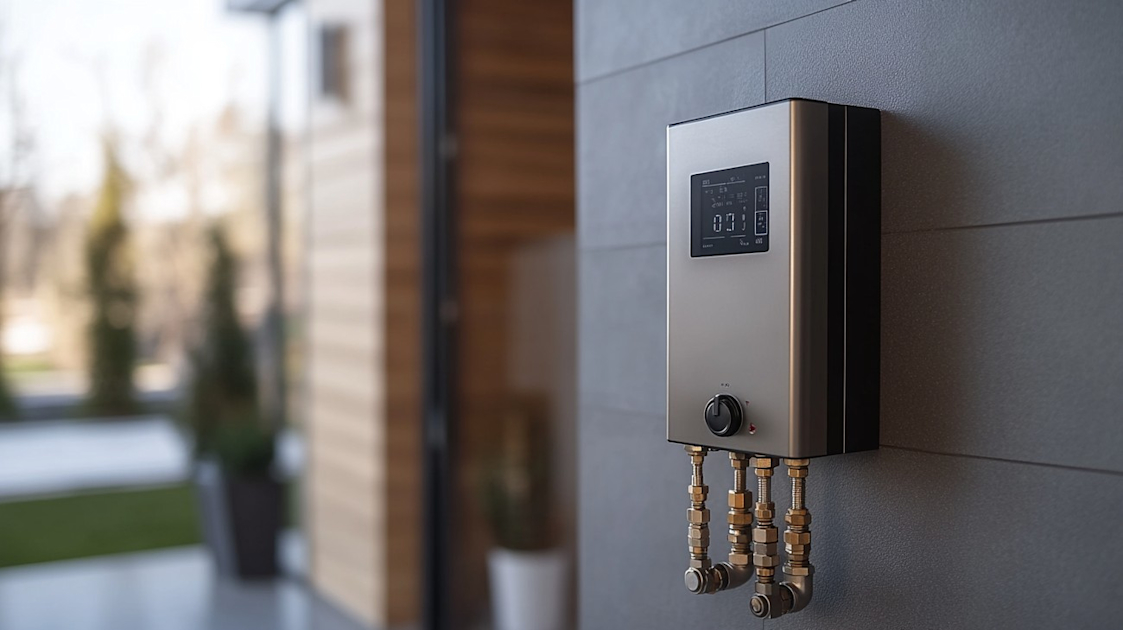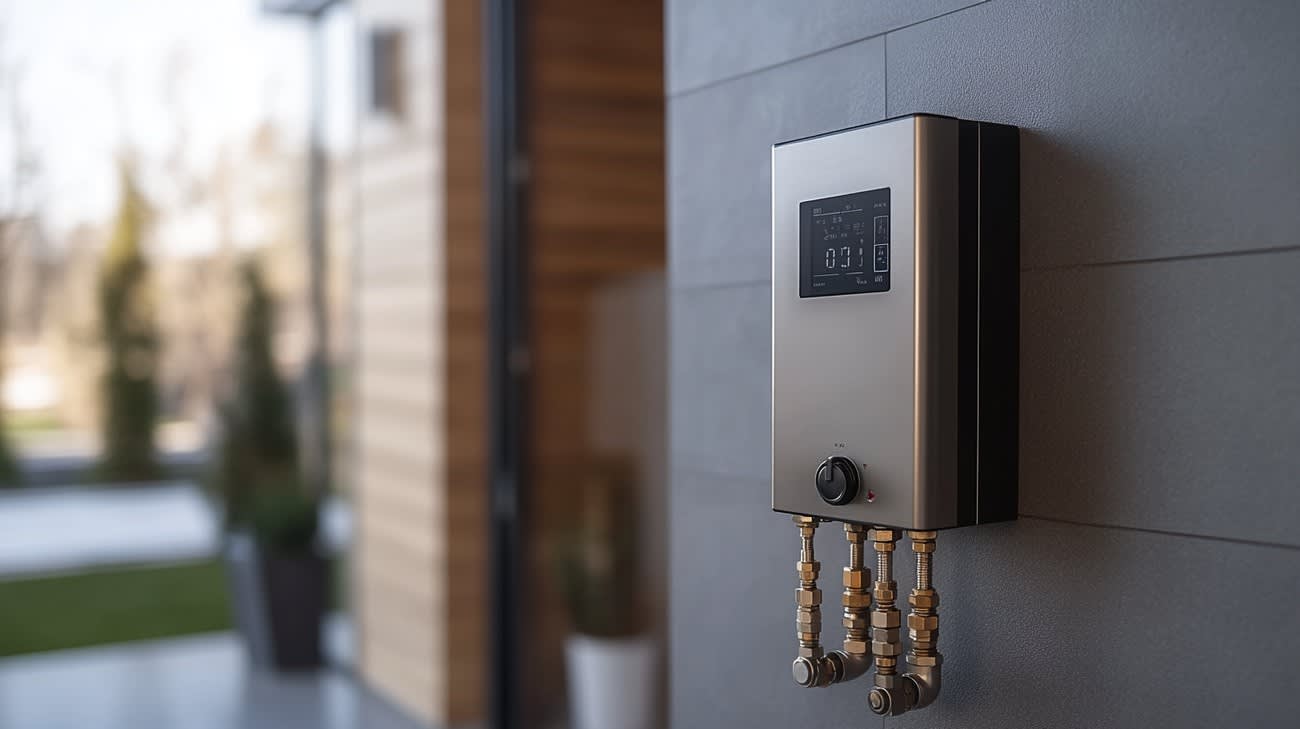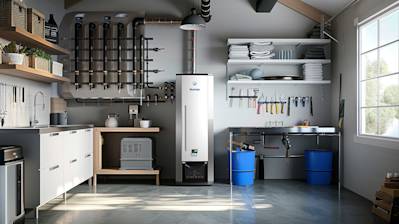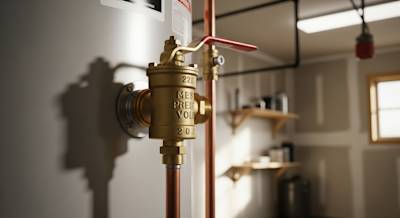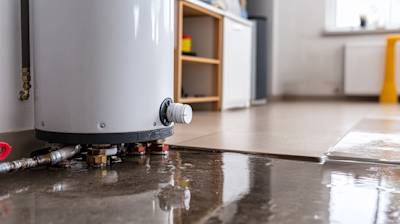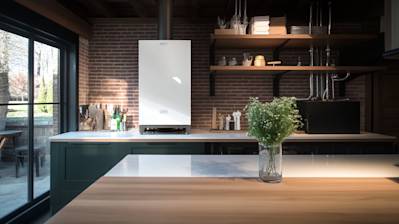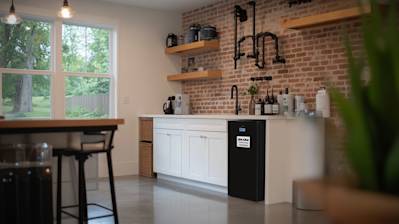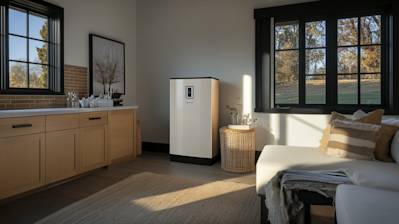Today homeowners are constantly seeking innovative ways to ensure energy efficiency, comfort, and convenience in their homes. One such technology that has drawn much attention over time, particularly for its benefits in all these areas, is the hot water recirculating pump.
What is a Hot Water Recirculating Pump?
A hot water recirculating pump is a system designed to keep hot water flowing in your pipes for immediate use, eliminating the wait for hot water. It is an excellent feature that applies to many applications, including home systems, commercial lodgings, and even for industrial applications.
Before we dig more into hot water recirculating pumps, let's briefly talk about how they operate.
Understanding the Working Mechanism of a Hot Water Recirculating Pump
Typically, a standard water heater system makes you wait for hot water. Once you close the faucet, the water in the pipe cools, and the process starts again when you need hot water.
A hot water recirculating pump operates differently. When you install this unit in your system, it constantly circulates hot water in the pipes to be ready for immediate use when you need it.
To give you a clearer picture, a hot water recirculating pump comes with a check valve that creates a closed loop through your home's water system. Therefore, you will have hot water on demand whenever you open your faucet.
The primary types of hot water recirculating pumps are:
- Full Recirculating Pump Systems
- Integrated Recirculating Pump Systems
- Comfort System
Full Recirculating Pump Systems
A full recirculating pump system works by having a dedicated hot water pipe installed in your home. This pipe runs from the furthest appliance or fixture back to the water heater.
Integrated Recirculating Pump Systems
The integrated recirculating pump system doesn't necessitate separate pipelines but uses the existing cold water line to return water to the heater.
Comfort Systems
Meanwhile, the comfort system is an under-sink hot water recirculating pump system that uses both a pump and a thermostat to regulate the temperature.
Advantages of a Hot Water Recirculating Pump
Here are some of the benefits of investing in a hot water recirculating pump:
- Instant hot water access: You will reduce the waiting time for hot water by up to 60%, saving you time and bringing convenience to your daily house chores.
- Water conservation: You can save hundreds of gallons of water because you don't have to wait for the water to heat up.
- Energy efficiency: Even though the pump runs continuously, it is designed to be energy efficient.
- It reduces pipe freeze: The constant circulation of water makes it harder for your pipes to freeze in colder weather.
Making the Right Choice: Factors to Consider When Purchasing a Hot Water Recirculating Pump
It's essential to factor in the following when considering a hot water recirculating pump for your home:
- Your plumbing system layout
- The distance from your water heater to your faucets
- The kind of water heater you own
- Energy consumption
- The manufacturer's reputation and warranty on the product
With such knowledge at your fingertips, you'll comfortably be able to pick a hot water recirculating pump that meets your specific needs.
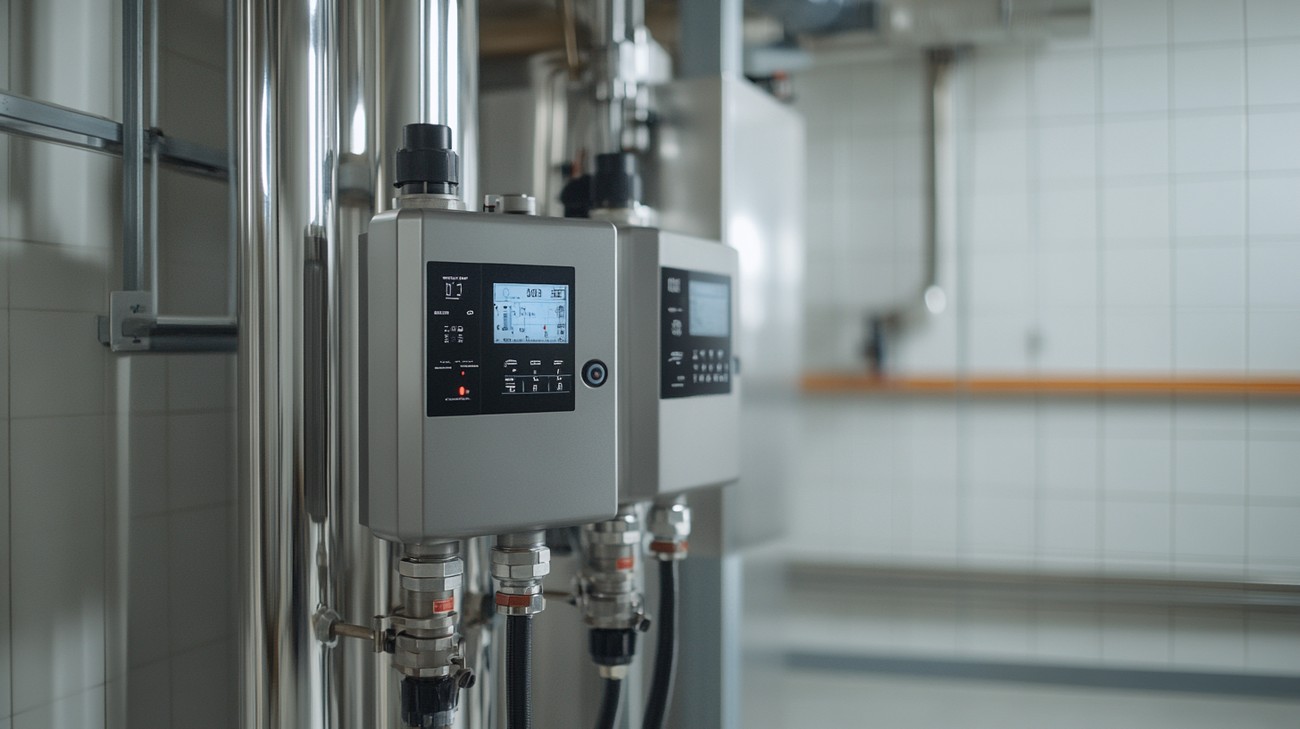
Frequently Asked Questions about Hot Water Recirculating Pump
What Are the Different Types of Hot Water Recirculating Pumps?
There are two main types of hot water recirculating pumps: a full-recirculating pump and an on-demand recirculating pump. The full-recirculating pump constantly moves water from the heater to the faucets, then back to the heater. On the other hand, on-demand systems operate only when hot water is required, preserving energy.
How Do I Choose the Right Hot Water Recirculating Pump?
Choosing the right hot water recirculating pump depends on several factors including the size and layout of your home, the type of water heater you have, and your specific hot water needs. It would help to seek a professional's advice to determine the best pump for your home.
Can a Hot Water Recirculating Pump be Used for All Types of Water Heaters?
Yes, hot water recirculating pumps can be used for all types of water heaters, including tankless water heaters, provided the heater is designed to handle the recirculation.
Does a Hot Water Recirculating Pump Save Money?
Yes and no. A hot water recirculating pump can save money on water bills because it reduces the waste of water that occurs while waiting for the water to heat up at the faucet. However, it could slightly increase your electricity or gas bill, depending on the type of water heater and pump you have.
How Much Water Does a Hot Water Recirculating Pump Save?
On average, a hot water recirculating pump can save approximately 10,000-15,000 gallons of water per year for a typical household. This amount can vary depending on the size of the home and water usage habits.
Does Installing a Hot Water Recirculating Pump Require Plumbing Skills?
Installing a hot water recirculating pump typically requires some basic plumbing skills. However, the complexity depends on the type of recirculation system installed. Some systems are designed for DIY installation, while others may require a professional plumber.
How Long Does a Hot Water Recirculating Pump Last?
The lifespan of a hot water recirculating pump varies depending on the specific model and usage. However, with proper maintenance, most pumps last for about 10-15 years.
Do Hot Water Recirculating Pumps Make Noise?
Most high-quality hot water recirculating pumps operate quietly, but some models or poorly installed pumps may make a slight humming or vibrating noise. Following proper installation procedures and choosing a top-quality pump can help avoid such issues.
Can I Install Multiple Hot Water Recirculating Pumps in My Home?
It is possible to install multiple hot water recirculating pumps in your home, especially in larger homes with multiple plumbing loops. However, it's crucial to consult with a plumbing professional to ensure the system is set up correctly.
How Can I Troubleshoot My Hot Water Recirculating Pump?
Common troubleshooting steps include checking the power source, checking for leaks, ensuring the pump is properly connected, and making sure the thermostat is set correctly. If troubleshooting fails, it's recommended to consult a professional to avoid any potential damage to the system.
Do Hot Water Recirculating Pumps Require Regular Maintenance?
Regular maintenance, such as periodic inspections for leaks, verifying that the pump is functioning correctly, and scheduling professional services as necessary can help extend the lifespan of your hot water recirculating pump.
Does a Hot Water Recirculating Pump Increase Home Value?
While it's hard to quantify exactly how much value a hot water recirculating pump adds to a home, it can certainly increase convenience and reduce water wastage, which are attractive features for potential home buyers.
Can a Hot Water Recirculating Pump Improve Water Pressure?
Some users report a slight increase in water pressure after installing a hot water recirculating pump. However, these pumps are primarily designed for instant hot water access, and not intentionally to improve water pressure.

Pros of Hot Water Recirculating Pump
Immediate Hot Water Supply
One of the major perks of installing a hot water recirculating pump is the immediate availability of hot water. No more long waits for the shower to warm up or the sink to provide hot water for dishwashing. Hot water is circulated continuously throughout the system, ensuring that it's ready to use the second you turn on the tap.
Enhanced Comfort
A hot water recirculating system provides enhanced comfort for users by ensuring a constant supply of hot water. It eliminates the inconvenience of waiting for cold water to get warm especially during cold seasons when hot water is a necessity.
Significantly Saves Water
A significant amount of water is wasted while waiting for it to reach the desired temperature. A hot water recirculating pump eliminates this wait time as it keeps a constant supply of hot water in the pipes, thereby reducing water wastage. This can greatly reduce your overall water usage, contributing to a more sustainable household.
Easily Installed
Hot water recirculating pumps come with easy to follow installation guides. Some brands even offer systems that don’t require a dedicated return line, which can significantly make the installation process less complex.
Increases Home Value
Homes that have a hot water recirculating pump may have an increased property value. This could be a big selling point for potential homebuyers who are looking for modern, energy-efficient amenities.
Cons of Hot Water Recirculating Pump
High Energy Usage
Although these pumps save water, they can consume a significant amount of energy to keep the hot water circulating, especially if they run constantly. This could lead to higher energy bills if used inefficiently.
Can Lead to Rapid Corrosion of Pipes
Hot water recirculating pumps can cause acceleration in the corrosion process of pipes due to constant hot water circulating within the system. As such, your water pipes may wear down faster and may need to be replaced sooner than they would without a circulating pump, leading to potential added cost.
Initial Cost and Installation
Hot water recirculating pumps, particularly high-quality ones, can be expensive to purchase, and professional installation can also add to the cost. Even though it may be possible to do it yourself, if you lack the right skills and tools, you could potentially cause a lot of damage.
Limited to Certain House Designs
Hot water recirculating pumps work best in a specific house design where a dedicated loop is possible. Homes that don’t meet this requirement might require substantial plumbing modifications to install the pump, leading to increased costs and complications.
Noise
These pumps can create a humming noise that can be bothersome to sensitive homeowners. The severity of this noise will likely depend on the quality of the pump and how it's installed, but the potential for added noise is something to consider.
Wastes Heat
Even though the circulation process ensures a ready supply of hot water, it also means that it constantly loses heat to the surroundings as it moves through the pipes. This lost heat ends up wasted, requiring significantly more energy to keep the water hot, which can raise energy costs.
Reduced Lifespan of the Water Heater
The constant circulation of hot water can put extra strain on your water heater, potentially reducing its lifespan. This could lead to higher costs down the line when replacement of the water heater becomes necessary.

Myths / Misconceptions about the Hot Water Recirculating Pump
Although hot water recirculating pumps have been in use for several years, there are still numerous myths and misconceptions surrounding their use, efficiency, installation, and maintenance. This section aims to debunk these persistent myths and present the facts about these efficient and convenient devices.
Myth 1: Hot Water Recirculating Pumps Are Difficult to Install
Misconception: You Need a Plumber to Install a Hot Water Recirculating Pump
One common myth is that installing a hot water recirculating pump is a complex task that requires the expertise of a professional plumber. While some types of pumps might need professional help, many models are specifically designed for easy DIY installation.
The traditional systems might require the skills of a professional, but many modern systems come with user-friendly instructions and flexible tubes. Some pumps even come with snap-on fittings that allow for easy and quick installation without the need for complex tools.
Myth 2: Pumps Waste More Energy Than They Save
Misconception: Hot Water Recirculating Pumps Increase Your Energy Bills
While it is true that a hot water recirculating pump uses electricity to operate, the energy cost is typically minimal, especially when compared to the water and time you would otherwise waste while waiting for the water to heat up.
Moreover, many pumps come with a built-in timer or thermostat that enables them to only run when necessary. This way, they manage to conserve both energy and water, which can potentially lead to significant savings on your utility bills over time.
Myth 3: Hot Water Recirculating Pumps Are Noisy
Misconception: A Hot Water Recirculating Pump Will Disrupt Your Quiet Home
Some people avoid investing in a hot water recirculating pump due to concerns that the pump will generate a high level of unwelcome noise. The truth, however, is that most modern models are engineered to operate quietly.
While older models might have produced noticeable noise, advances in technology and design have allowed manufacturers to significantly reduce the sound levels of these pumps. Many homeowners report that they don't even notice the sound of their pump operating.
Myth 4: Recirculating Pumps Cause Pipe Corrosion
Misconception: Hot Water Recirculating Pumps Accelerate Corrosion in Pipework
Another misconception about hot water recirculating pumps is that they cause the pipes to corrode faster. Contrary to this belief, these pumps do not create any extra corrosion than what would be expected in a typical hot water system.
Corrosion in piping is usually a result of factors such as water quality, temperature, and pipe material, among others. It's worth noting that proper installation and regular maintenance of the pump system can help to minimize the risk of pipe corrosion.
Myth 5: Hot Water Recirculating Pumps Are Expensive and Luxurious Items
Misconception: Recirculating Pumps Are Only Suitable for Large, Luxury Homes
There's a common misconception that hot water recirculating pumps are high-end luxury items, suited only for large, opulent residences. While they surely add a level of convenience, it's essential to understand that these pumps are affordable and beneficial for homes of all sizes.
Consumers can find hot water recirculating pumps to suit various budgets, from basic models to high-end versions with smart features. Regardless of the size of your home, installing a pump can make waiting for hot water a thing of the past, save water, and reduce your utility bills.
In conclusion, dispelling the myths and misconceptions surrounding hot water recirculating pumps is key to understanding their benefits and functionality. Once you separate facts from fiction, you can make an informed decision about whether one of these pumps will be a useful addition to your home.
Summary
So, essentially, a hot water recirculating pump is a handy device that not only provides instant hot water access but reduces water wastage remarkably. It's beneficial for large households where hot water demand is high, especially during peak hours. Saving time, minimizing waste, and enhancing comfort, these units are proving to be a key addition to modern home plumbing systems.
Installing a hot water recirculating pump could be the answer to your lukewarm water issues. Consider its benefits: No more waiting for the water to heat up for morning showers or dishwashing. It's a real asset for your home setup, offering hot water on demand, making everyday tasks quicker and easier to complete. It could be a game-changer for your household.
But like every appliance, a hot water recirculating pump has its quirks. It might impact your electricity bill due to the additional energy it uses. And it can be a bit tricky to install initially. But, with its water-saving benefits and the convenience of instant hot water, many homeowners find this pump a worthwhile addition. Weighing its pros and cons thoughtfully can guide you to make the best decision for your home.
About KYPD Plumbing
KYPD Plumbing is the go-to expert for all your plumbing needs in Lexington, KY. Our talented team of professionals is committed to providing top-notch service, whether it's for a routine repair or a major installation. With years of on-ground experience under our belts, we have an in-depth understanding of the plumbing system's ins and outs, giving us a unique ability to solve any plumbing issue. As a locally-owned business, we understand our community's unique needs and make customer satisfaction our top priority. And remember, when you look past the small drips and the large wrenches, you'll find that at KYPD Plumbing, we're not just about pipes and drains, but about people and relationships too. So, don't hesitate to drop us a line or swing by—all your plumbing troubles are just a faucet-turn away from a solid solution with KYPD Plumbing.
Tags: water pump, recirculating system, energy efficient,

